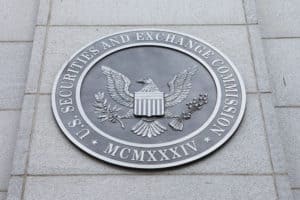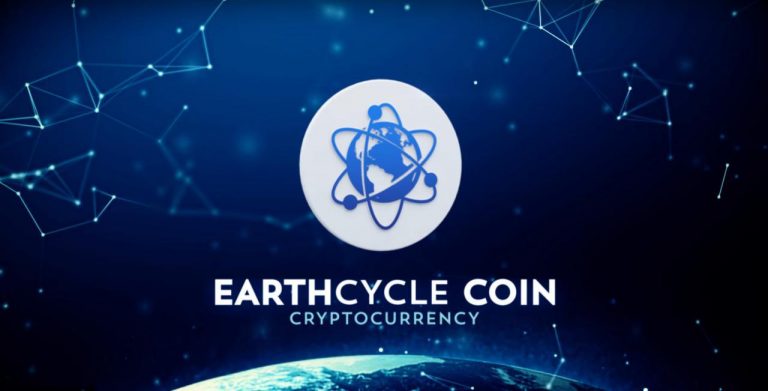
2021-4-22 13:05 |
A blockchain is a digital record of transactions. It consists of records labeled as “blocks”, which are then linked together in a chain-like formation. Appropriately named after its structure, blockchain is commonly used for recording cryptocurrency transactions, with its most popular use case being the Bitcoin platform.
Apart from the financial domain, it is a flexible tool that has many applications beyond just cryptocurrency. Recently it has been cited as a powerful tool in the corporate world, as it increases business efficiency while simultaneously decreasing costs.
While it is a coveted tool in the business world, it was notorious for using copious amounts of energy leading to a huge environmental impact. Despite this, blockchain has emerged as a unique tool for businesses to introduce corporate social responsibility (CSR), a management concept where companies integrate social and environmental issues in their business model and stakeholder interactions.
Blockchain intertwined with CSRThe movement of social responsibility is increasing in popularity across the globe. Blockchain can be utilized to incorporate numerous sustainable measures that fall under CSR. For instance, it can serve as a platform for building a circular economy, which is an economic plan designed to eliminate waste and continual use of resources.
On a more specific level, CSR and blockchain can also be incorporated into a company’s supply chain. Utilizing blockchain to incorporate CSR into a business model is an excellent opportunity for corporations to follow the increasingly important trend of social responsibility in society.
Consumers are now demanding real, tangible efforts made by corporations, and some even claim that they would prefer acquiring services from businesses that display their dedication to environmental stewardship.
Corporations have long been under fire from activists, being exposed for greenwashing and dishonesty. Long story made short, businesses often hide under the guise of environmental and social sustainability while actively participating in harmful activities.
The benefits of blockchain to consumers and businesses and its utility in corporate social responsibility are intertwined. Its core principles of trust and transparency present us with an opportunity to neutralize the negative impact and move forward to a more sustainable future.
Blockchain’s benefits for consumers and businessesBlockchain can ensure socially responsible supply chain management through transparency. It provides improved visibility across the whole landscape:
Transportation of goods from warehouses to markets State, quality, and price of the products Order fulfillment and transaction execution.The broad availability of information creates an ideal environment for data integrity. Blockchain’s decentralized structure ensures that every party is in control of their processes and has access to appropriate data. Throughout the entire supply chain process, the details of every transaction are recorded and made accessible via a permanent history – once the data is created, it cannot be deleted or altered. This makes it impossible to compromise the ledger.
With this detailed tracking and verification process, linking and sharing can be done synchronously. Advantages include eliminating human errors, reducing costs, and minimizing time delays associated with performing transactions. This will make supply chains exponentially more efficient.
By eliminating overhead costs (i.e. exchanging assets) and the involvement of third parties, blockchain provides an opportunity to greatly decrease transaction cost and time. For example, the cost of invoice factoring can be reduced by as much as 25%, as blockchain decreases the risk of selling multiple invoices.
Blockchain can assist in identifying and correcting contract violations, redundancies, and bottlenecks in the flow of goods. This ease of tracking and identification also improves Corporate Social Responsibility. Blockchain can be incorporated in a business’ CSR efforts as it can create a record of transaction and production history. This can serve as proof of a company’s utilization of humanely sourced raw materials or products.
It also provides an opportunity for consumers to be well-informed on a corporation’s business practices and sustainability within their products, allowing them to make knowledgeable decisions on where to spend their money. Increased consumer awareness would also encourage companies to sustainably source their materials and ensure social responsibility throughout all steps of the supply chain.
Not only does blockchain benefits consumers and businesses, but it benefits society as a whole as we move towards more ethical business models.
Blockchain and circular economyOn a larger scale, blockchain can promote a circular economy. This concept consists of reducing materials, waste, and reusing products in order to ensure a “closed-loop” or “cycle” in order to preserve resources.
Utilizing its high level of transparency and traceability, blockchain can incentivize a circular economy within businesses. It can track resources used from the extraction point to distribution to its purchase by consumers, all while confidently authenticating its social responsibility declarations.
Another unique utilization of blockchain is its ability to create a distinctive digital identity that is tradeable. This can emphasize the inherent value of natural resources, which could incentivize consumers and businesses’ adoption of circular economy and related behaviors.
An example of a circular economy can be seen in the recycling industry. Plastic Bank, a recycling company specializing in plastics, has created a system where consumers receive digital tokens in exchange for plastic recyclables. These tokens can then be utilized in partner stores. It is a socially responsible way to generate revenue and tackle environmental issues that have been plaguing society for some time now.
Not as easy as it seemsDespite its emergence as a promising new technology, there are barriers to its widespread implementation. Encouraging the use of blockchain is similar to encouraging cultural changes in society. Both are increasingly difficult and take time to completely implement.
It is no easy feat to integrate new technology into already established supply chains. This is clearly one of the most daunting barriers to the use of blockchain. There are a few basic requirements that must be met that will allow blockchain to have its projected impact.
According to the Logistics Bureau, a supply chain consulting company, there are six key steps to implementing blockchain technology:
Identifying expected benefits Decide on the ideal blockchain consensus method Decide on the appropriate platform Configure said platform Draft Smart contracts Design a suitable user interfaceSmart contracts are digital agreements stored on the blockchain that automatically execute when predetermined terms and conditions are met. A key aspect of these smart contracts are that once they are implemented into the blockchain, they cannot be altered, so drafting smart contracts beforehand is crucial.
Ultimately, any blockchain investment should be evaluated and established from the perspective of sustainability. While blockchain is promising and brimming with potential, it is a nascent technology. Therefore, it is difficult to predict the actual performance improvements for any type of business. Blockchain should be implemented with both the opportunities and risks in mind.
Blockchain as an opportunity for sustainabilityThe implementation of blockchain is key in the movement towards sustainable economic and social development. Its optimization of supply chain management provides real opportunities as it offers unparalleled transparency and traceability. Undoubtedly, it can lead to improvements in business practices, not only performance-wise, but also from an ethical standpoint.
The utilization of blockchain and the promotion of a circular economy would result in reduced environmental impact and increased consumer trust due to the transparency and accountability it provides.
The post How Blockchain Can Promote Corporate Social Responsibility appeared first on Coin Journal.
origin »Bitcoin price in Telegram @btc_price_every_hour
High Performance Blockchain (HPB) на Currencies.ru
|
|




















